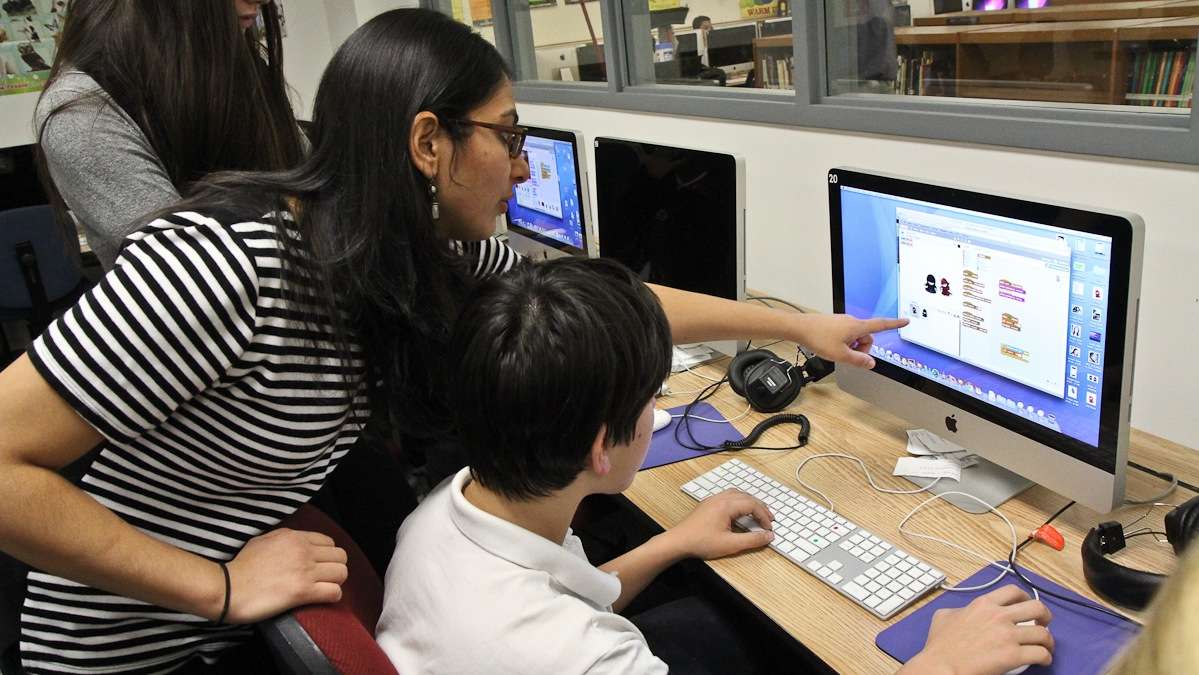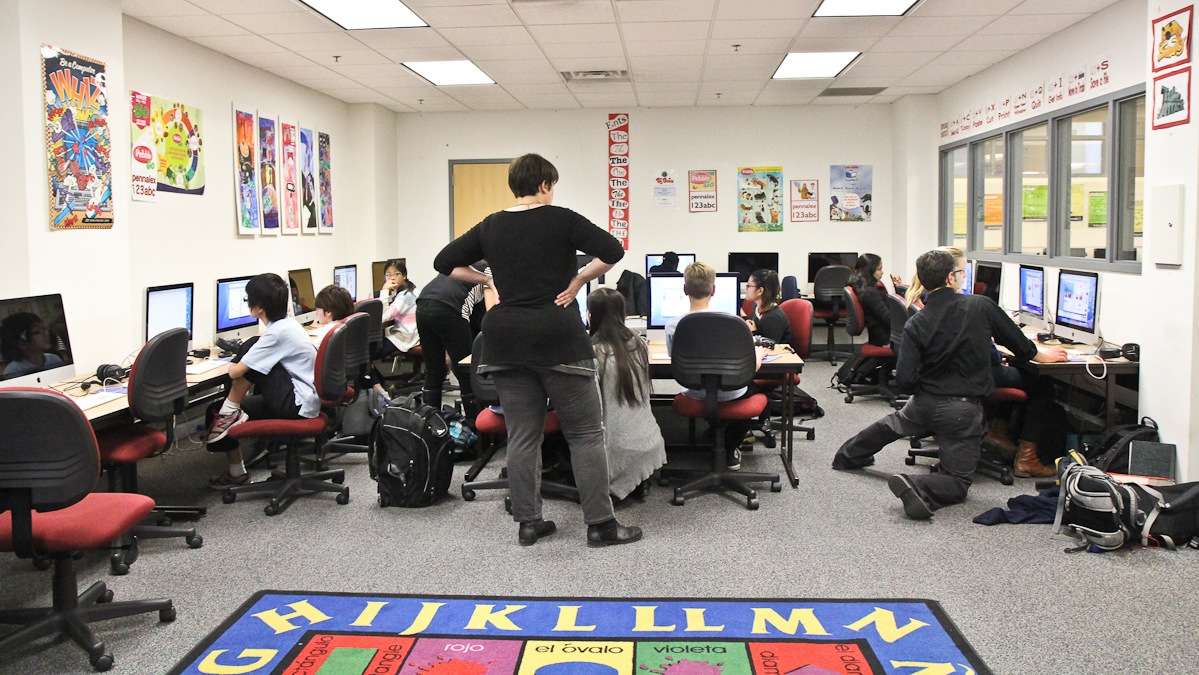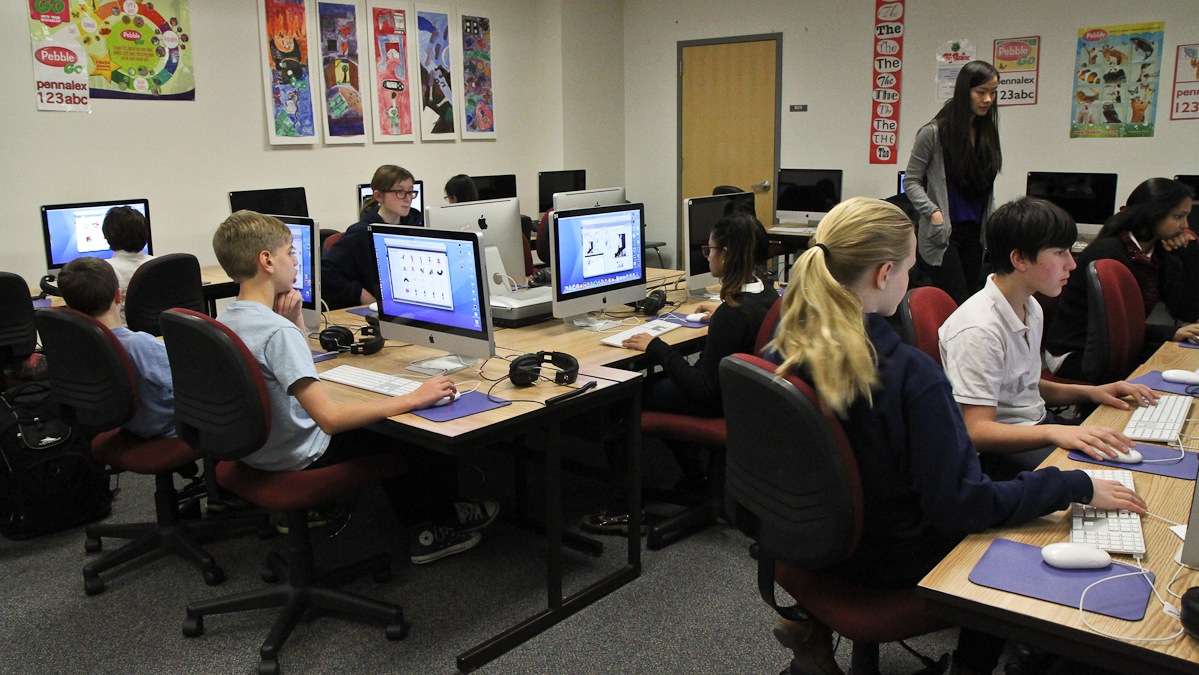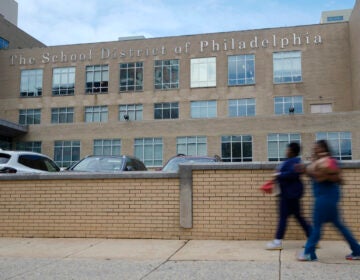Staying true to their code at Penn Alexander, students master programming
ListenFriday is the final day of Computer Science Education Week – where educators nationwide work to spark students’ interests in what it takes to create the digital world around us.
Some students in Philadelphia have risen to the occasion, turning their classroom into an DIY arcade.
At the Penn Alexander school, video games are actually part of the curriculum — not playing them, but creating them.
“Making to learn is really about articulating these ideas and then enacting them,” said Veena Vasudevan, a doctoral student at Penn’s Graduate School of Education.
Vasudevan has been helping kids at Penn Alexander– the university’s partner school – learn the basics of coding with a programming tool called Scratch.
“When they have to create something in Scratch, for example, they say something like, ‘I want my character to move.’ Well, what does movement actually look like? So they actually have to think through the problem,” she said. “They have to think what they want to happen, and then they have to figure out how they want it to happen.”
Scratch allows kids to program without having to type long, convoluted commands. Its drag-and-drop functionality helps them avoid the common gripe of rookie programmers: typos.
Seventh-grader Moritz Endriss has been coding a game where a polar bear flies around in a jet pack as his jacket changes colors at a frenetic pace. He’s still working out a code for what happens if the polar bear bumps into a Christmas tree, but he has a plan.
“I’m going to have a little ‘game over’ symbol, and the game is going to end, and then you can press the space bar to restart,” Moritz explained.
For sixth-grader Sophia DeGrands, understanding bits and bytes runs in the family.
“My dad works on computers a lot, and I really like computers, and I wanted to try and make a game,” she said.
In her game, a cat aims to eat cakes and avoid carrots – a bit of an autobiographical signature on Sophia’s part. “I like candy or junk food, and I don’t like vegetables,” she confirmed.
Eleven-year-old Ami Doumbia plans to become a singer, or a doctor, but maybe an app-store all-star in her encore career.
“If I retire or something, I might try to make a game to get some money,” the sixth-grader said. “I want to travel around the world before I die, see everywhere.”
Penn professor of learning science Yasmin Kafai, a noted scholar in her field who actually helped develop the Scratch technology, oversees the graduate student work at Penn Alexander.
In the 21st century, she said, getting hands-on programming experience in youth is “basic literacy.”
“We all have to understand coding like we have to understand reading and writing. Very few of us will become writers and write the great book. That’s reserved for a few, but all of us learn how to read and write to express ourselves, to participate,” she said. “Likewise, I think you need to understand how the things you interact with on the screens are made.”
Earlier in the week, students at Carver High School of Engineering and Science spoke via video phone with Microsoft founder and chairman Bill Gates, an opportunity afforded only to seven other classrooms nationwide.
WHYY is your source for fact-based, in-depth journalism and information. As a nonprofit organization, we rely on financial support from readers like you. Please give today.











